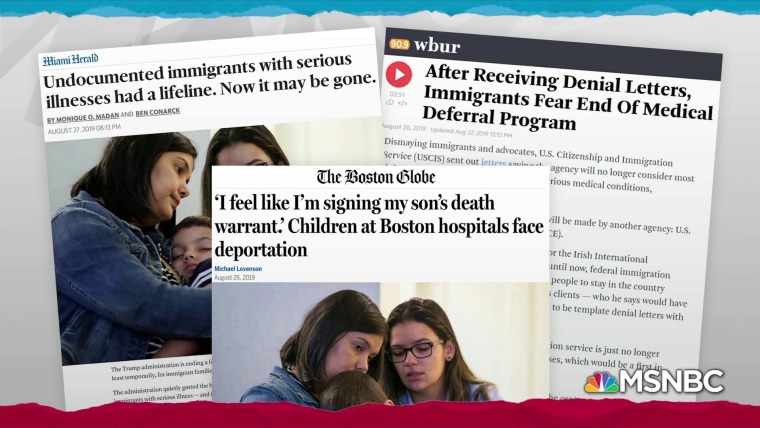It was about a month ago when we first learned that the Trump administration was threatening critically ill children with deportation. As regular readers may recall, it was almost hard to believe.
For all of Donald Trump's talk about targeting "bad hombres" to keep Americans safe, in this case, his administration was targeting children receiving treatment for life-threatening ailments who'd been granted "medical deferred action." By threatening the kids and their families with deportation, the administration's U.S. Citizenship and Immigration Services was effectively delivering death sentences.
The policy was almost cartoonish in its malevolence. Even critics of the Republican White House, who've come to expect the worst from Trump and his team, were taken aback by the reports. These families were told they had 33 days to leave the country. There was no opportunity to appeal or challenge the decision.
As Rachel noted at the top of last night's show, the policy in question is no more.
The Trump administration formally backed away from plans to deport critically ill immigrant children in a notification sent to Congress Thursday.In a letter sent to the House Oversight Committee, the Department of Homeland Security said that it is "resuming its consideration of non-military deferred action requests on a discretionary, case-by-case basis."
If this sounds familiar, it's because the administration seemed to back off a couple of weeks ago, but the shift left a series of unanswered questions, including the program's uncertain future. Those questions appear to have been answered -- and Team Trump's reversal is complete.
It's probably not a coincidence that the House Oversight Committee was slated to hold a hearing next week on the administration's cruelty, which immigration officials were likely going to have a hard time defending.
As for the road ahead, some congressional Democrats have expressed an ongoing interest in determining who, exactly, thought deporting sick children would be a good idea, and what problem the administration was trying to solve.
It's not unreasonable to expect some answers.
